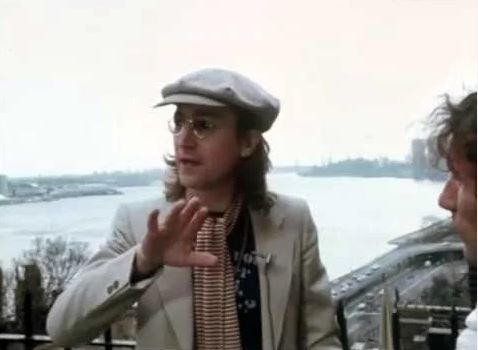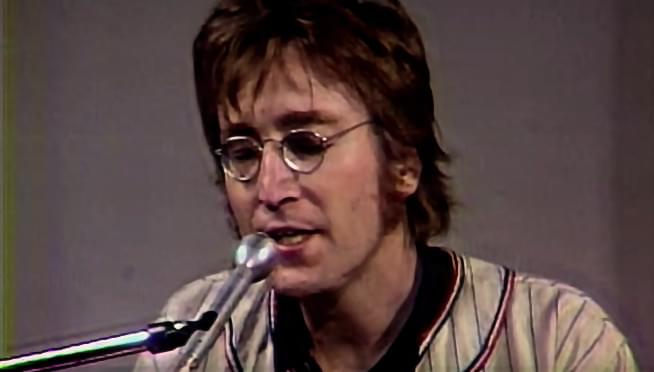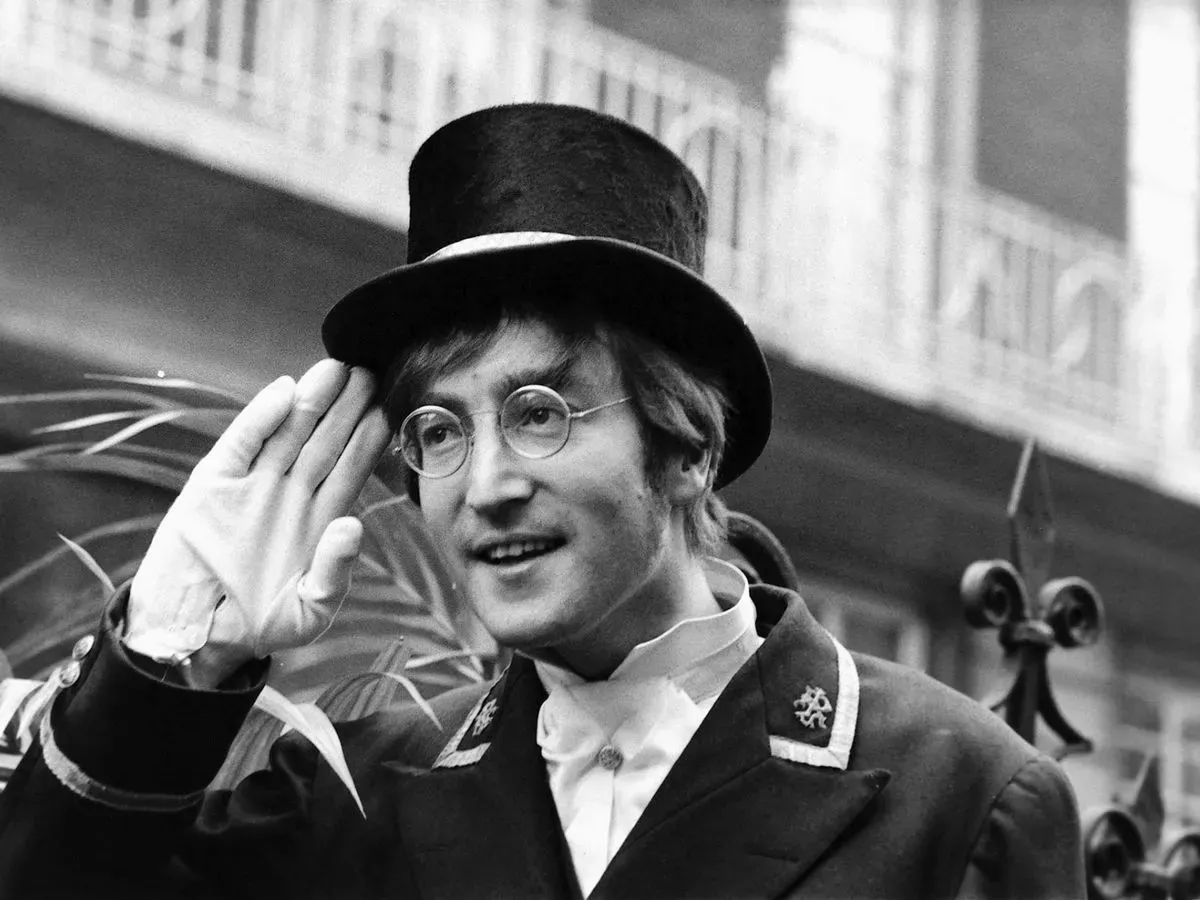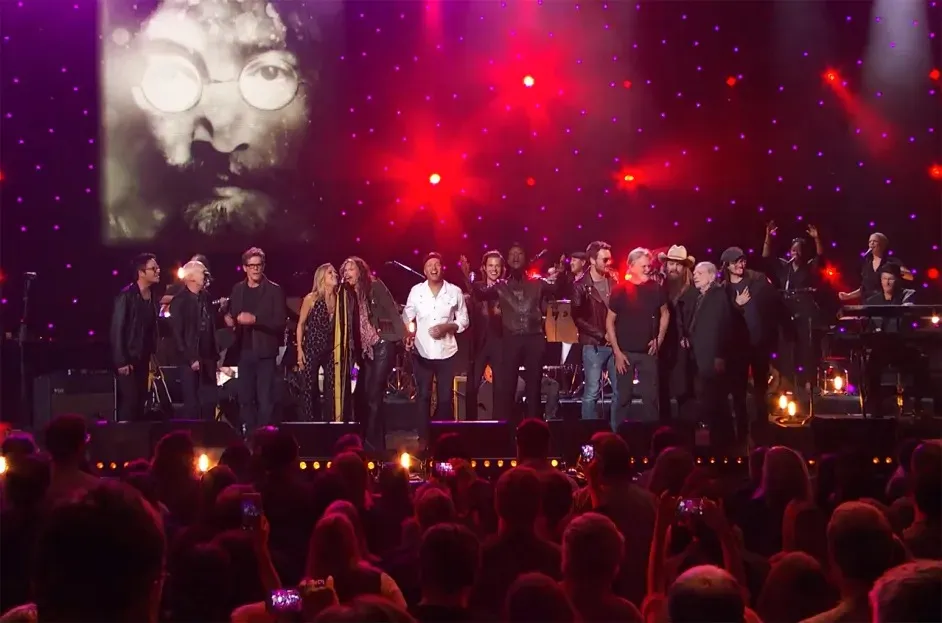In the realm of music, few figures carry the weight of influence and controversy quite like John Lennon. As one of the founding members of The Beatles, Lennon's impact on popular culture is immeasurable. However, beyond his musical legacy, Lennon was also known for his outspoken views on politics and social issues. One such instance that captured the attention of the world was his contentious interview about world peace with journalist Gloria Emerson.
(Watch the video below)

In the early 1970s, amidst the backdrop of the Vietnam War and a growing global movement for peace, John Lennon emerged as a prominent voice advocating for love and unity. His songwriting, particularly in partnership with his wife Yoko Ono, often delved into themes of peace, activism, and personal introspection. Yet, it was his willingness to engage in public discourse and confrontational interviews that truly solidified his status as an iconoclast.
The interview in question took place in December 1971, with journalist Gloria Emerson for the New York Times Magazine. Emerson, known for her incisive and probing style of questioning, did not shy away from challenging Lennon on his beliefs and actions regarding peace activism. What ensued was a tense and at times confrontational exchange that laid bare the complexities of Lennon's philosophy and the challenges of promoting peace in a world plagued by conflict.

Lennon, ever the provocateur, began the interview by addressing the elephant in the room - his unconventional methods of advocating for peace, including his infamous "bed-ins" and avant-garde performance art with Yoko Ono. He defended these actions as necessary disruptions to draw attention to the urgent need for peace in a world torn apart by war and violence. However, Emerson was quick to question the efficacy of such stunts, challenging Lennon on whether they were merely self-indulgent spectacles or genuine acts of activism.
The conversation then turned to more substantive issues, with Emerson pressing Lennon on his views regarding the Vietnam War and his relationship with political leaders and movements advocating for peace. Lennon's responses were candid and at times contradictory, reflecting the complexity of his position as both a celebrity and an advocate for social change. He expressed frustration with the limitations of celebrity activism, lamenting the superficiality of public perception and the challenges of effecting real change in the world.
Throughout the interview, Lennon's trademark wit and acerbic humor were on full display, as he sparred with Emerson over the nuances of his beliefs and the realities of political activism. Yet beneath the banter and bravado lay a deep-seated commitment to the cause of peace and a genuine desire to make a difference in the world. Despite his reservations about the effectiveness of his own efforts, Lennon remained steadfast in his belief that art and music had the power to transcend boundaries and inspire people to strive for a better world.

As the interview drew to a close, both Lennon and Emerson seemed to have gained a newfound respect for each other, despite their differences. Lennon acknowledged the importance of journalists like Emerson in holding figures of authority accountable and challenging the status quo. Meanwhile, Emerson came to appreciate Lennon's sincerity and passion, even if she remained skeptical of some of his methods.
In retrospect, Lennon's interview with Gloria Emerson stands as a testament to his complex and multifaceted persona. He was not simply a musician or a celebrity but a deeply engaged citizen of the world, grappling with the same issues and dilemmas as the rest of humanity. His willingness to engage in difficult conversations and confront uncomfortable truths made him a lightning rod for controversy but also a beacon of hope for those who shared his vision of a more peaceful and just world.

In the years following the interview, Lennon continued to be a vocal advocate for peace until his tragic death in 1980. His legacy endures not only in his music but also in his unwavering commitment to the cause of peace and his belief in the power of ordinary people to effect extraordinary change. And while his interview with Gloria Emerson may have been contentious, it also served as a poignant reminder of the importance of dialogue and debate in the pursuit of a better world.



